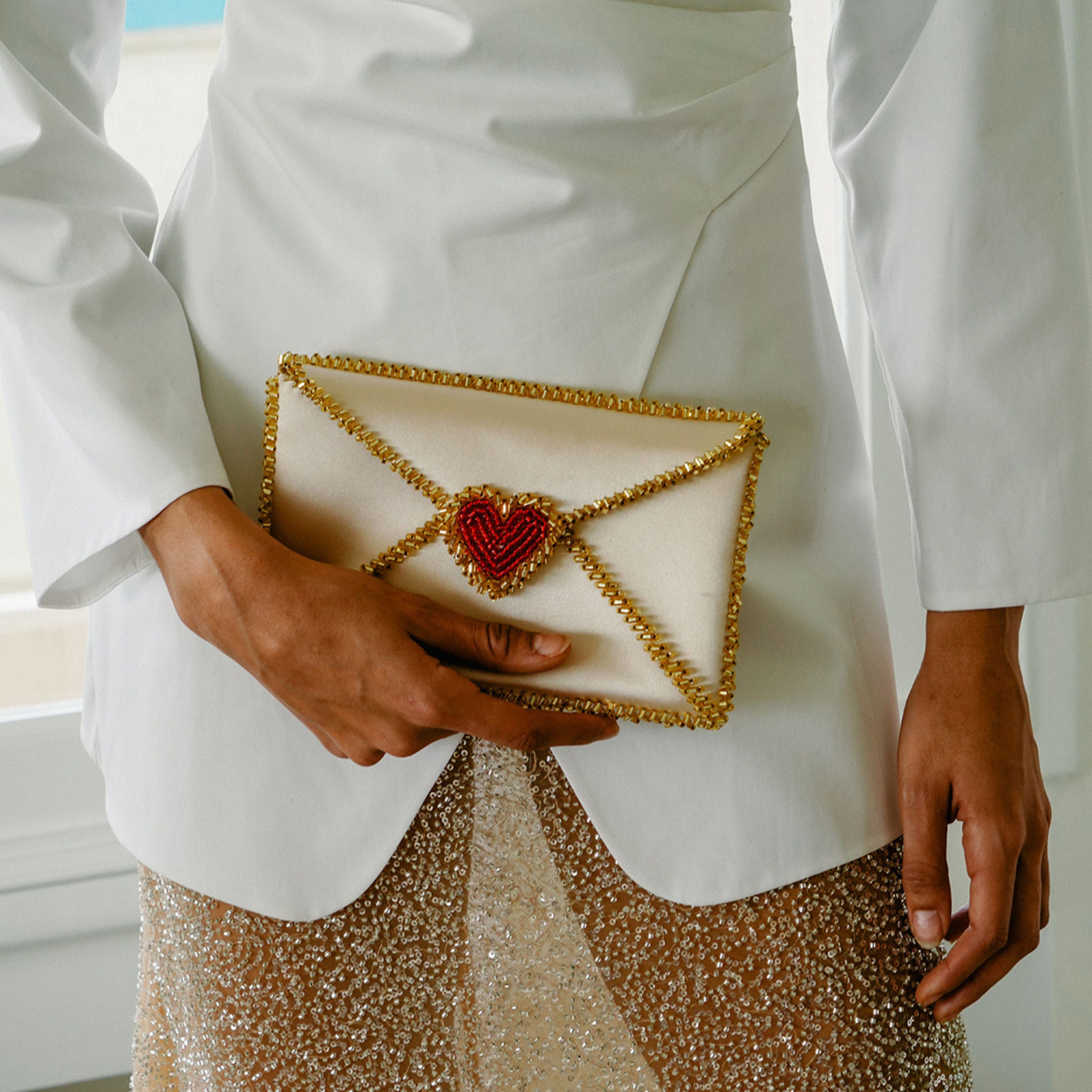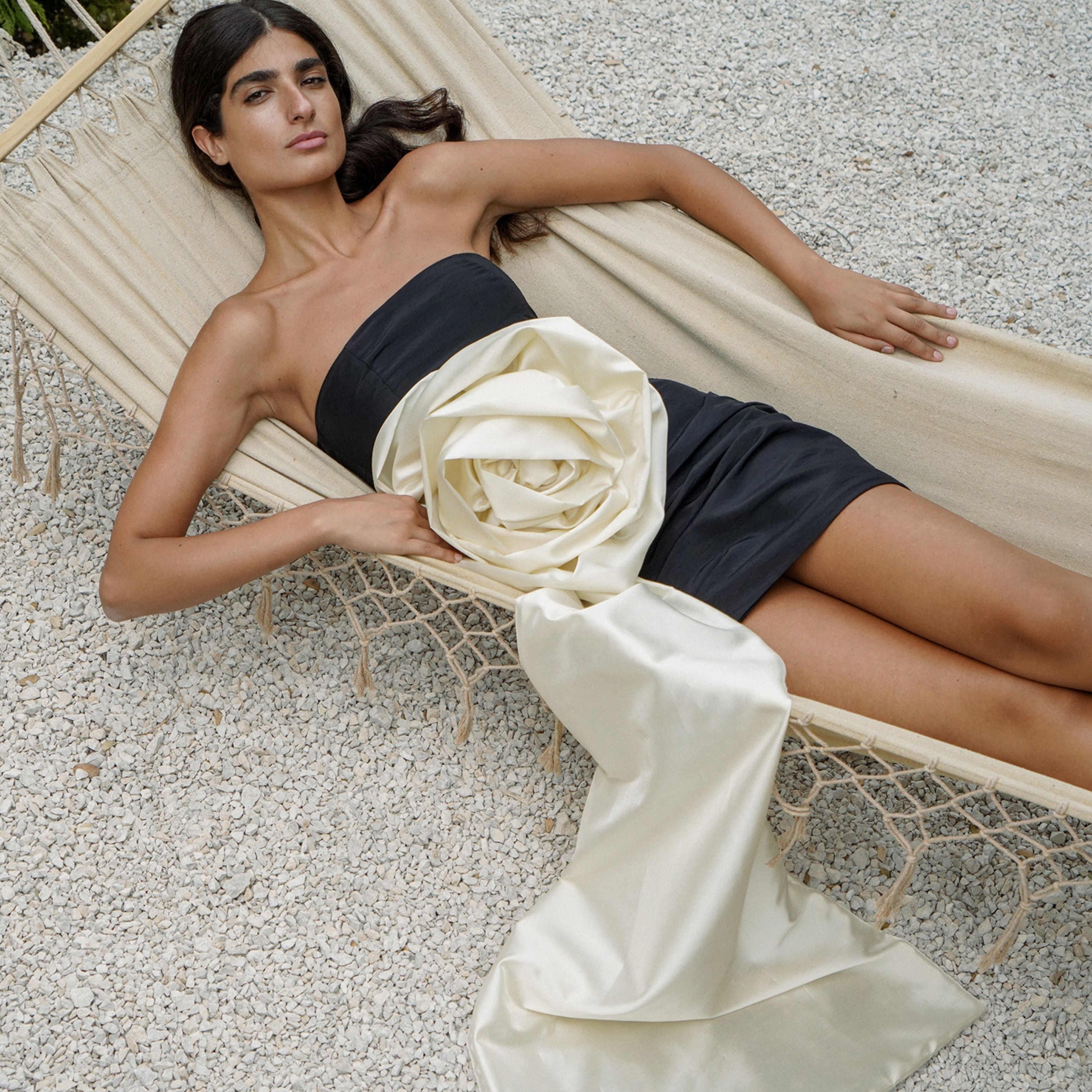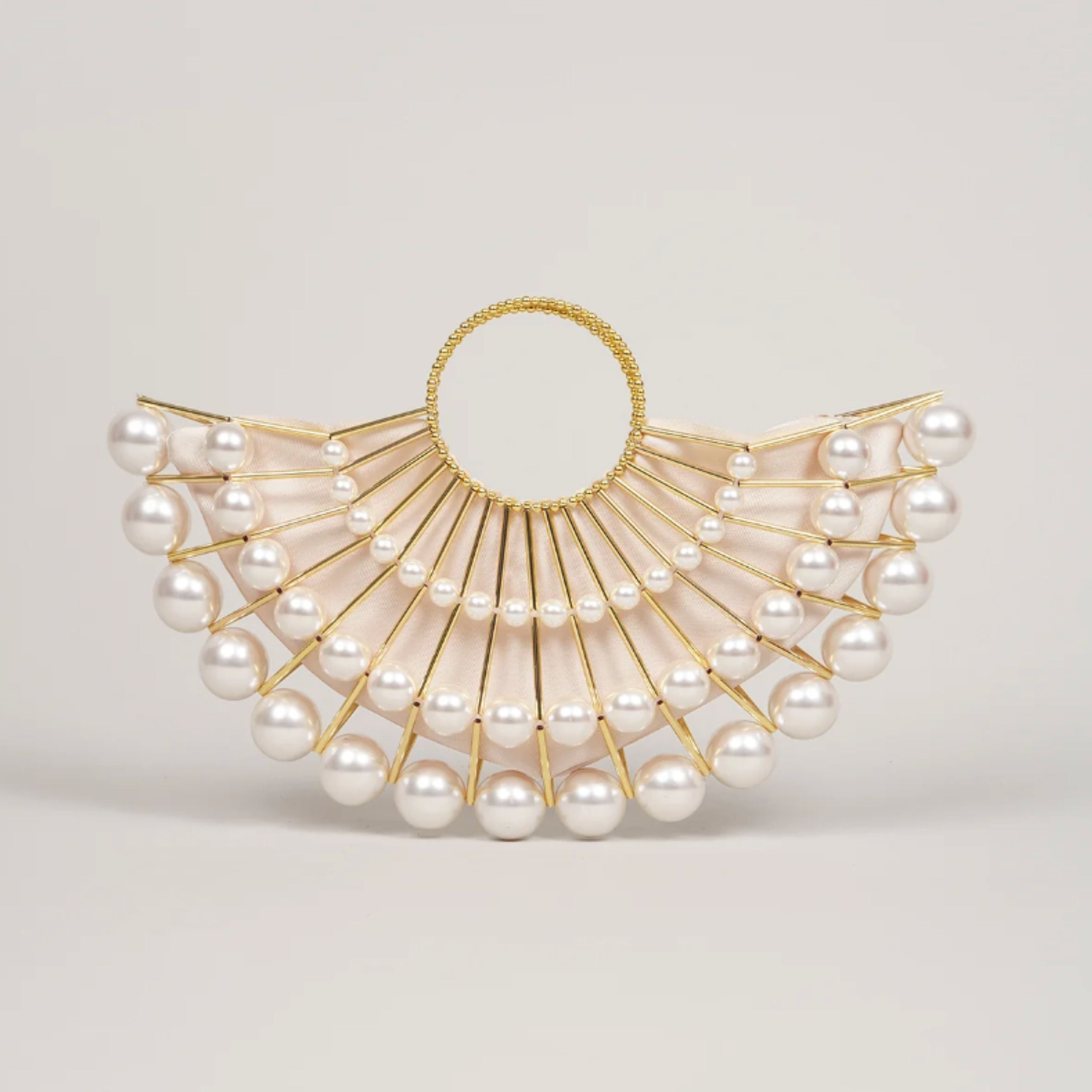Thank you Susan Wilson for this beautiful article about Vanina in the Daily Star: using fashion as a tool for change.
Thank you for shedding light on our work and mission!
-

-
"BEIRUT: To mark eight years since childhood friends Tatiana Fayad and Joanne Hayek found themselves creating their own fashion brand at age 19, VANINA hosted an open-door exhibit at its flagship store in Mar Mikhael last week, a retrospective and a preview of their upcoming collections.
“We were childhood friends, it started really as a hobby,” VANINA co-founder Hayek says. “I was doing architecture and Tatiana was studying marketing [at university].”
Fashion was not the intended career path for either woman, but a spontaneous idea to take devalued Lebanese liras and turn them into a jewelry collection called COINED set the pair on a path toward a conceptual fashion brand, one that seeks to raise awareness for environmental and social change.
“We realized through this collection that fashion has some power. We were playing with value, because we took these coins that were devalued and created a new form of luxury,” Hayek says.
“Usually with jewelry you understand the value as the weight of resources that you consume like gold; with us it was the opposite.
“It’s because it’s devalued, you don’t know what to do with it, it’s an ecological burden – for us it has a new value ... new life.”
Since the initial collection, VANINA has gone on to collaborate with NGOs and other brands to create a series of sustainable fashion ideas.
“We collaborate with NGOs as much as possible in Lebanon, for sourcing of materials, for many things. One of them is Arcenciel, they have a program for environmental waste management – they collect the waste and sort it.
“With their help we sourced these tin cans that we transformed into evening bags, again playing on that value chain idea,” Hayek explains, pointing to the CONSERV’ED collection, a series of glamorous-looking evening bags made from these discarded tin cans.
There are a range of issues covered by VANINA in their retrospective, including conflict through CEASE-FIRE, a statement jewelry series made with colorful matches in collaboration with Beirut NGO the Permanent Peace Movement.
The matches used were “disarmed” and “the idea was you could try and try again and these matches wouldn’t light any fire,” Hayek explains.
VANINA also worked closely with local artisans to produce their jewelry, accessories and apparel collections. “Everything is handcrafted in Lebanon. We have our own workshop and we work with 12 affiliated workshops and NGOs,” Hayek says.
Work with Lebanese NGOs produced HALFA bags, made in collaboration with L’Artisan du Liban, who sourced locally grown straw from the Akkar region, hand woven in the village of Koueishra.
It also resulted in the hand stitching on T-shirts of the “’90s we love you” collection, produced in collaboration with Inaash, an NGO that promotes the preservation of Palestinian culture.
VANINA has also tackled environmental issues by collaborating with Swarovski in STILL LIFE, a collection that married the world famous crystals with flowers created from non-biodegradable plastic bags.
Upcycling – taking something that would be discarded and turning it into something with greater value – is a key philosophy behind VANINA’s collections.
This idea is continued in their latest work, the previewed 2016 collection shown at Tuesday’s event.
On display was LEAVES, eco-jewelry in collaboration with More Than Printing & Arab Printing Press. “It is done with used paper sheets, 150 layers that we transform and the forms are inspired by the shapes of tree leaves,” Hayek says.
Hayek, sporting a pair of earrings from the collection, explains that the layers were created via a special 3-D printing technique that carves the leaves out of the stacks, making it hard to tell the pieces are paper based.
The PLASTILE collection is a series of colorfully patterned bags made in collaboration with NK by Nour Kays, who used a heating press to create a new flexible, sturdy and waterproof material.
“It is also plastic bags but these are thinner than the ones we used in [STILL LIFE], they are grocery bags, the ones from the supermarket that are non-biodegradable.
“NK had developed a technique fusing the plastic bags together into a new material that is sturdy, that you can use to create items ... Through this collaboration we developed a technique of creating patterns through the plastic bags, so in fact here is a black plastic bag on top of a white one, but the black is punched with holes,” Hayek explains, while holding a black clutch with white polka dots.
VANINA has been collecting plastic bags for PLASTILE at its Mar Mikhael store, and is contemplating a more direct collection in the future by going around buildings in Beirut and appointing one person in each to gather the plastic bags for pickup. “Every square meter of this material is 24 plastic bags diverted away from landfills,” Hayek says, adding that PLASTILE is a way “to raise awareness about the waste issue in Lebanon.”
Their final new collection was born from a desire to make themselves more self-sustainable.
“Since we opened the shop last year we have expanded our apparel [clothing] line. And we’ve ended up with a lot of remains of textiles because each pattern is cut differently, each size of textile is different.
“So we wanted to do something to really close the loop and really use it to the fullest, so we did this series of scarves that are unique and each one uses the remains of the textiles that are hand stitched,” she says, showing off the brightly patterned scarves in the PATCHES collection.
The brand’s driving philosophy, using fashion as a tool to raise awareness for social and environmental causes, has over the years created a series of collections and collaborations that are forward thinking in both their fashion and their intent.
It has also turned a spontaneous idea between two friends into a brand that, while fully based in Lebanon, currently sells to 22 countries worldwide.
For Hayek and Fayad, VANINA is now a full time venture. “Year after year our hobby became our job and our jobs became our hobbies,” Hayek explains with a smile."
- print edition of The Daily Star on June 22, 2015, page 2.













